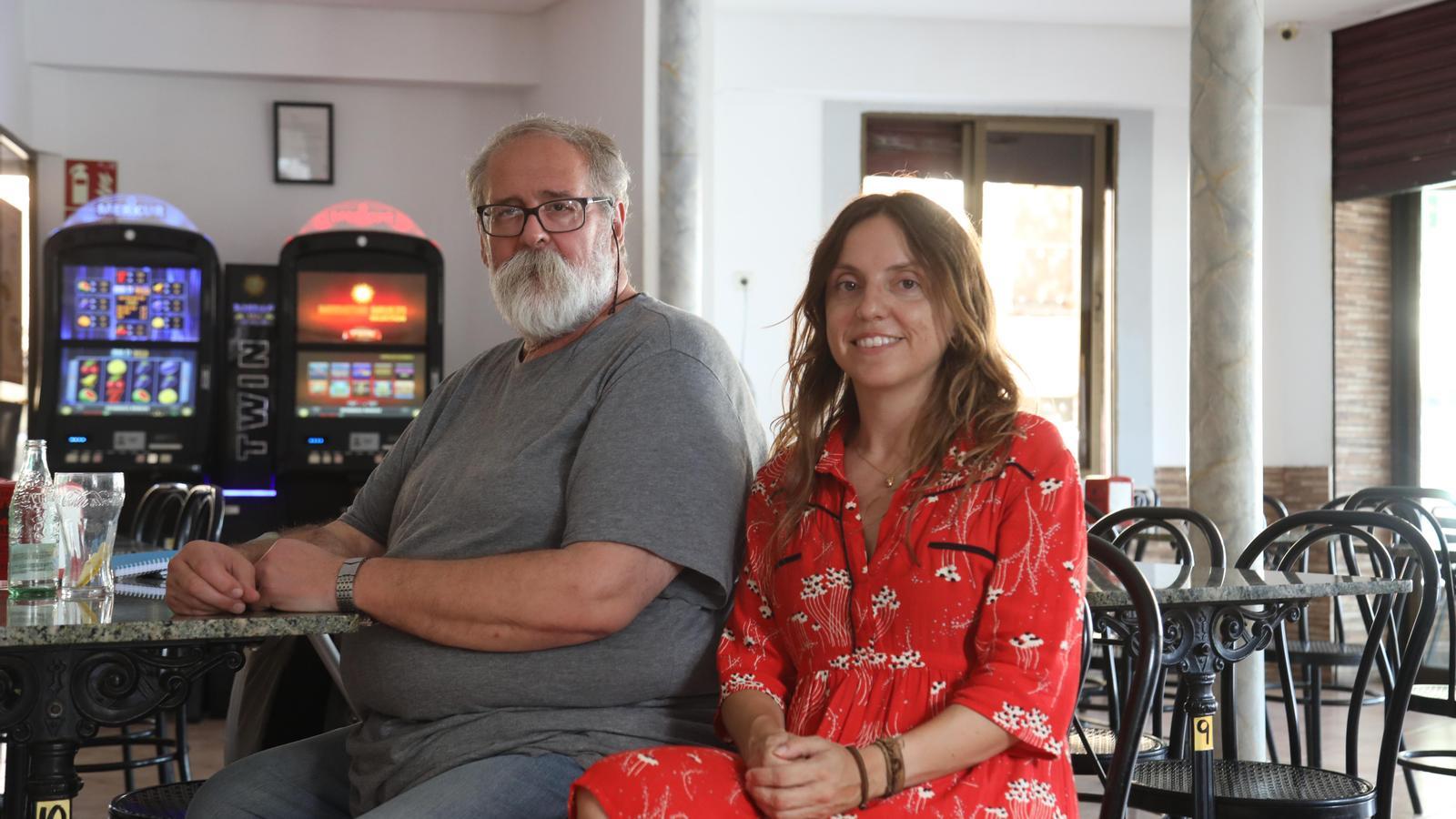La Soledad reactivates its neighborhood association: "Working together is the only way to move forward as a neighborhood."
The new entity organizes a celebration for the Virgin Mary to make initial contact with the neighbors.


PalmUnity is strength. This universal message, which "was true 70 years ago, is true now, and will be true 70 years from now," is what the president of the new Soledat neighborhood association, Miquel Coll, wants to convey to the neighborhood's residents. "In the face of this bombardment that tells us 'you can do anything,' something that isn't true individually," says Coll, "we have to work together to move forward." As a first step, they will reach out to the neighborhood's residents to revive the festival of Our Lady of Solitude, which will take place the weekend of September 13 and 14. "The idea is to make ourselves known so we can build strength," adds Miquel.
The new organization has set its main objective to improve the neighborhood's quality of life with concrete, step-by-step actions. Among its priorities is the cleaning and maintenance of public spaces, especially in critical areas such as the old Can Ribes Sud warehouse, vacant lots, and areas with accumulated manure. The association also aims to promote socio-educational workshops in schools and neighborhood centers to raise awareness about the importance of keeping streets and common spaces clean, encouraging neighbor involvement and pet care.
Miquel, who has always been involved in community-based movements, moved to Soledad a year and a half ago. The idea of reactivating the association, which had disappeared, arose naturally when he realized that a neighborhood like his didn't have one. "I believe that community engagement is essential in any neighborhood, and even more so in a complex one like this," he notes.
Coll explains that Soledad has several layers: the more traditional society, with lifelong neighbors; the commuter neighborhood, with people who live there but don't feel it's their own; and the stigmatized neighborhood. In this sense, citizen safety is another priority. The association is calling for a specific plan to eliminate drug sales and use on the streets, with increased police presence during peak hours and the inspection of entertainment venues that generate noise and conflict. It also proposes incorporating social workers on the streets and in schools to support vulnerable people and prevent addictions.
The 1980s were tough years for the neighborhood: after the oil crisis and factory closures, the problems of marginalization and drugs shifted to Soledad. Miquel points out that during this time it was "very common" to find syringes on the street, something that has finally disappeared until now. According to him, for about a year now, syringes have been lying around the street again, and it's common to find people injecting themselves sitting between cars.
Generational relief
One of the main challenges facing neighborhood associations is generational change. UIB Sociology professor David Abril recalled in a report by Maria Llull that "the problem is not only with neighborhood associations." "The generation that made the Transition and gave a face to the social movement, now made up of retirees, bears the weight of many organizations," he explained. "Their level of commitment and activism is higher than that of the new generations. When they die, we will have a problem, and everything will be much more volatile on a social level," he warned.
Miquel also sees this problem, and he would like neighborhood associations to be considered as volunteer work to try to alleviate it. However, the latest addition to the neighborhood association, just a few weeks ago, has brought in new blood. Isabel Bonnin, whose life has always been tied to Soledad. Her godparents lived there, and many childhood memories were forged. Over the years, life took her down different paths, but now she's returned to the neighborhood.
The housing situation in Mallorca
Due to the current housing situation in Mallorca, Isabel made what she considered a logical and emotional decision: to return to her family apartment. "Returning to Soledad was, in a way, like returning to my roots," she explains. A social worker by profession, Isabel says that her perspective on her surroundings "is inevitably critical and constructive." "When I returned, I clearly saw that there were aspects of the neighborhood that could be improved, such as cleanliness and safety," she adds. It was then that she decided she didn't want to "sit idly by" or limit herself to "just complaining."
Isabel firmly believes in "associationalism as a driving force for change," and that's why she approached the neighborhood association. "There I found more than just a working group: I found motivated, enthusiastic, and committed people who want to transform Soledad and, at the same time, protect its history, its identity, and what it was and what we want it to continue to be," she concludes.
Petition to the City Council
Recently, the Soledat Residents' Association presented a document to Palma City Council detailing the neighborhood's main problems and proposing several courses of action. In addition to measures to improve cleanliness and safety, they are calling for a review of the sewer system and better management of stormwater. They also request a comprehensive study to address mobility issues and the lack of parking.
Other proposed actions relate to heritage protection, finding a permanent solution for the houses on the north side of Carrer de Manacor, and restoring Plaza de Can Ribes as a social hub for the neighborhood.
